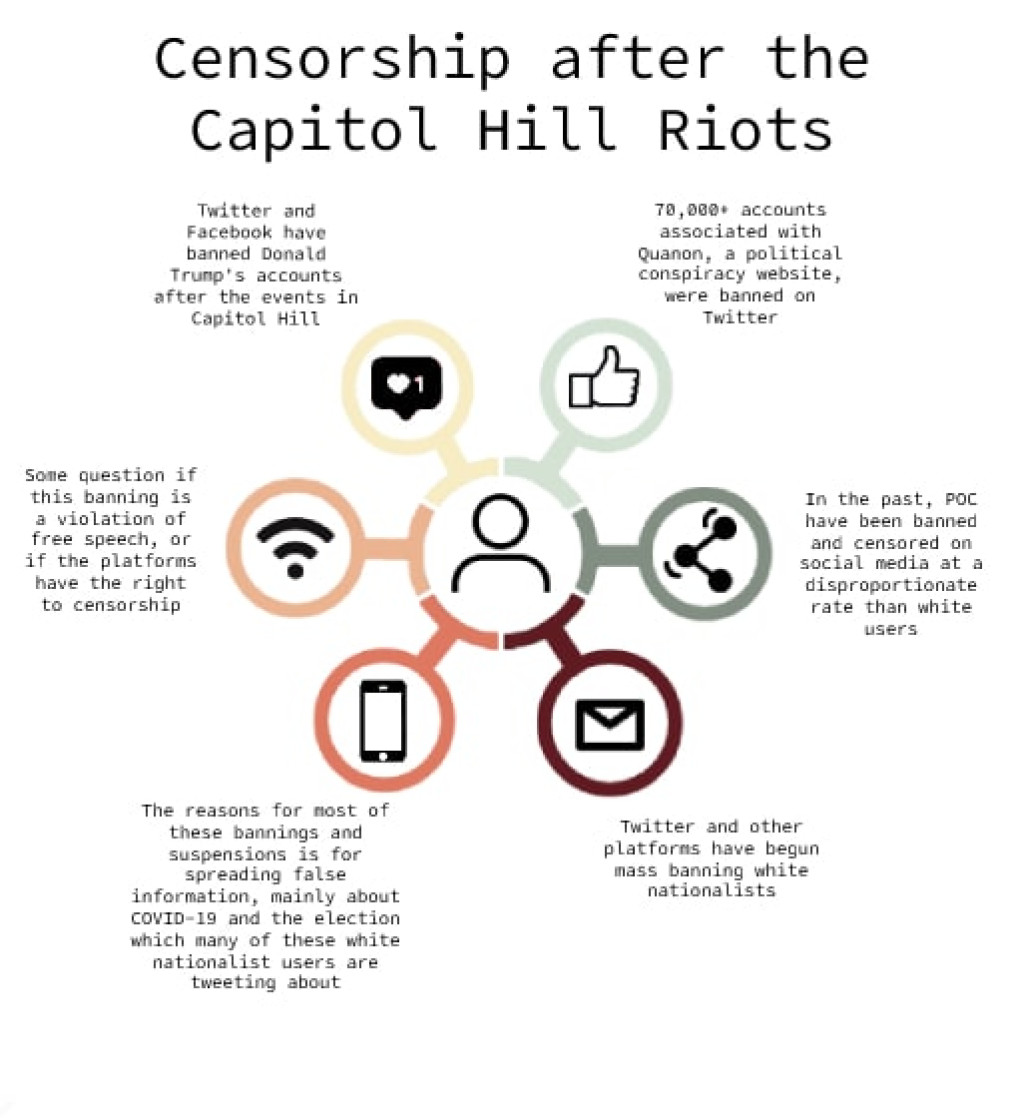Shortly after the storming of the United States Capitol on January 6, social media platforms sprung into a flurry of the most overt action against white supremacy and hate speech. Within the week, Twitter banned more than 70,000 accounts associated with QAnon, a web of insane and outlandish conspiracies revolving around the idea that the world is run by pedophiles. The conspiracy blames figures such as Hillary Clinton, Pope Francis, and Oprah Winfrey, claiming that they’re operating a sex-trafficking ring and plotting against former President Trump. Trump was also banned from numerous sites, including Twitter, Facebook, and Instagram.
These platforms took action against these users due to the false information they were spreading, which included alleging that the election results were false and communicating misinformation relating to COVID-19, the violence they incited that led to the mob that descended on the Capitol, and general hate speech posted, violating the policies of the forums.
The reactions to these bans, with a particular focus on those applying to the former president, ranged from elation and exclamations of how overdue this act was, to anger, with many conservative voters claiming this was a violation of the First Amendment. Twitter stock fell 12 percent by the next Monday, a decrease in their market value of about five billion dollars.
However, the reactions of the many white nationalists targeted by the bans and outraged Trump supporters show just how protected these groups have been from censorship on social media. In a case where their online presence directly caused an insurrection which endangered many, killed five, and sent a hazardous and dividing message about how the country will proceed into the Biden administration — as well as directly violated the rules of the social media platforms that are agreed to when creating an account — they play the victim and claim unjust censorship. In reality, this is white nationalists and supremacists finally being held accountable to the rules and for their actions.

The algorithms used to censor hate speech actually favor white people, white men in particular. A 2019 study found that tweets written by African Americans or written in African American Vernacular English were respectively 1.5 and 2.2 times more likely to be flagged as hate speech. This is partly because the AI processing systems have difficulty detecting the context or author of tweets. For example, slurs that would be hateful coming from many people, but not from those rightfully reclaiming them, are often marked as hate speech coming from both groups. The AI cannot differentiate between hateful use of them versus the use of them as casual vocabulary by the minority they target.
Human error also influences the bias of online censorship. Tech fields are made up of mostly white and Asian men, and the samples provided to AI to guide post monitoring reflect the inherent bias of the coders.
Black, Indigenous and people of color (BIPOC) have been speaking out about the censorship they experience online for many years, bringing up situations such as reposting the exact same thing as a white friend and being the only one flagged for it. This undue censorship has affected their online activism and communications with peers. Minorities have also faced censorship all through history, and the legacy of this issue must be addressed, as opposed to banned white nationalists whining about not being treated as if they are above the rules.





